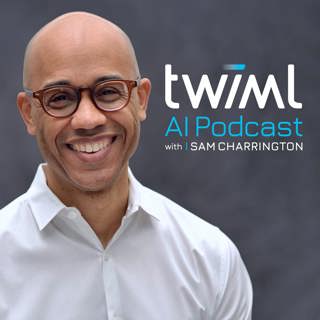
Trends in Deep Learning with Jeremy Howard - TWiML Talk #214
In this episode of our AI Rewind series, we’re bringing back one of your favorite guests of the year, Jeremy Howard, founder and researcher at Fast.ai. Jeremy joins us to discuss trends in Deep Learning in 2018 and beyond. We cover many of the papers, tools and techniques that have contributed to making deep learning more accessible than ever to so many developers and data scientists.
24 Joulu 20181h 8min

Training Large-Scale Deep Nets with RL with Nando de Freitas - TWiML Talk #213
Today we close out both our NeurIPS series joined by Nando de Freitas, Team Lead & Principal Scientist at Deepmind. In our conversation, we explore his interest in understanding the brain and working towards artificial general intelligence. In particular, we dig into a couple of his team’s NeurIPS papers: “Playing hard exploration games by watching YouTube,” and “One-Shot high-fidelity imitation: Training large-scale deep nets with RL.”
20 Joulu 201855min

Making Algorithms Trustworthy with David Spiegelhalter - TWiML Talk #212
Today we’re joined by David Spiegelhalter, Chair of Winton Center for Risk and Evidence Communication at Cambridge University and President of the Royal Statistical Society. David, an invited speaker at NeurIPS, presented on “Making Algorithms Trustworthy: What Can Statistical Science Contribute to Transparency, Explanation and Validation?”. In our conversation, we explore the nuanced difference between being trusted and being trustworthy, and its implications for those building AI systems.
20 Joulu 201823min

Designing Computer Systems for Software with Kunle Olukotun - TWiML Talk #211
Today we’re joined by Kunle Olukotun, Professor in the department of EE and CS at Stanford University, and Chief Technologist at Sambanova Systems. Kunle was an invited speaker at NeurIPS this year, presenting on “Designing Computer Systems for Software 2.0.” In our conversation, we discuss various aspects of designing hardware systems for machine and deep learning, touching on multicore processor design, domain specific languages, and graph-based hardware. This was a fun one!
18 Joulu 201855min

Operationalizing Ethical AI with Kathryn Hume - TWiML Talk #210
Today we conclude our Trust in AI series with this conversation with Kathryn Hume, VP of Strategy at Integrate AI. We discuss her newly released white paper “Responsible AI in the Consumer Enterprise,” which details a framework for ethical AI deployment in e-commerce companies and other consumer-facing enterprises. We look at the structure of the ethical framework she proposes, and some of the many questions that need to be considered when deploying AI in an ethical manner.
14 Joulu 201853min

Approaches to Fairness in Machine Learning with Richard Zemel - TWiML Talk #209
Today we continue our exploration of Trust in AI with this interview with Richard Zemel, Professor in the department of Computer Science at the University of Toronto and Research Director at Vector Institute. In our conversation, Rich describes some of his work on fairness in machine learning algorithms, including how he defines both group and individual fairness and his group’s recent NeurIPS poster, “Predict Responsibly: Improving Fairness and Accuracy by Learning to Defer.”
12 Joulu 201845min

Trust and AI with Parinaz Sobhani - TWiML Talk #208
In today’s episode we’re joined by Parinaz Sobhani, Director of Machine Learning at Georgian Partners. In our conversation, Parinaz and I discuss some of the main issues falling under the “trust” umbrella, such as transparency, fairness and accountability. We also explore some of the trust-related projects she and her team at Georgian are working on, as well as some of the interesting trust and privacy papers coming out of the NeurIPS conference.
11 Joulu 201846min

Unbiased Learning from Biased User Feedback with Thorsten Joachims - TWiML Talk #207
In the final episode of our re:Invent series, we're joined by Thorsten Joachims, Professor in the Department of Computer Science at Cornell University. We discuss his presentation “Unbiased Learning from Biased User Feedback,” looking at some of the inherent and introduced biases in recommender systems, and the ways to avoid them. We also discuss how inference techniques can be used to make learning algorithms more robust to bias, and how these can be enabled with the correct type of logging policies.
7 Joulu 201840min





















